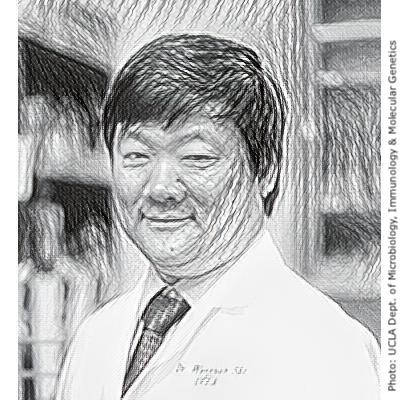Wenyuan Shi
Candy that’s good for your teeth? It may sound too good to be true but that’s exactly what microbiologist and inventor Wenyuan Shi has brought to market: a tasty lollipop made of ingredients that have the ability to fight the primary bacteria responsible for causing tooth decay.
A native of China, Shi attended Fudan University in Shanghai where he earned a BS in Genetics in 1984. He then traveled to the United States to pursue graduate studies and completed a PhD in Genetics at the University of Madison, Wisconsin, in 1991.
From there Shi moved on to the University of California, Berkeley, where he served as a postdoctoral researcher and assistant research biologist from 1992 to 1995. He became an Assistant Professor at the University of California, Los Angeles’, School of Dentistry and the UCLA Molecular Biology Institute in 1996, rising to the rank of Professor in 2002.
Shi became interested in the notion of using Chinese herbs in oral medicine to fight various types of infection. More than 700 types of bacteria are known to live in the human mouth. The environment is a perfect incubator for bacteria and in many cases, they can cause harm such as tooth decay and sore throat. Shi knew that for thousands of years, herbal treatments had been used in his home country to treat everything from stress and the common cold to infertility and cancer. He began studying the herbs in an attempt to discover an inexpensive, easy-to-produce supplement that might be used to help patients take care of their teeth and gums.
After testing more than 1,000 different herbs, Shi zeroed in on Glycyrrhize uralensis, also known as licorice root, when he found that the substance killed bacteria such as S. mutans and streptococcus, known to be responsible for many types of tooth decay. The herb also keeps bacteria from adhering to teeth and promotes saliva flow, both of which can help lead to healthier teeth.
He came up with an innovative solution for delivering the herbs when he decided to blend it into a sugar-free, orange-flavored lollipop, figuring that patients might be more apt to use it that way. Additionally, as it takes about five minutes for the herb to kill bacteria, a lollipop serves as an effective slow-release device.
Working with candy manufacturer C3, Shi produced thousands of samples for testing, branding the product Dr. John’s Herbal Candy. Soon the lollipops became commercially available. He recommends that patients eat one lollipop after breakfast, another at bedtime, for ten days straight. Afterwards, patients would only need to eat one every three to six months. Of course, they also need to continue brushing and flossing twice daily.
The candy is now available through a candy manufacturer that licenses the technology from UCLA. Shi has also worked on high-tech mouthwash and established an herb library at UCLA for use by students and researchers in the medical and dental schools, where he holds joint appointments. Shi currently serves as Professor and Chairman of UCLA’s Dental School’s Oral Biology Department.


